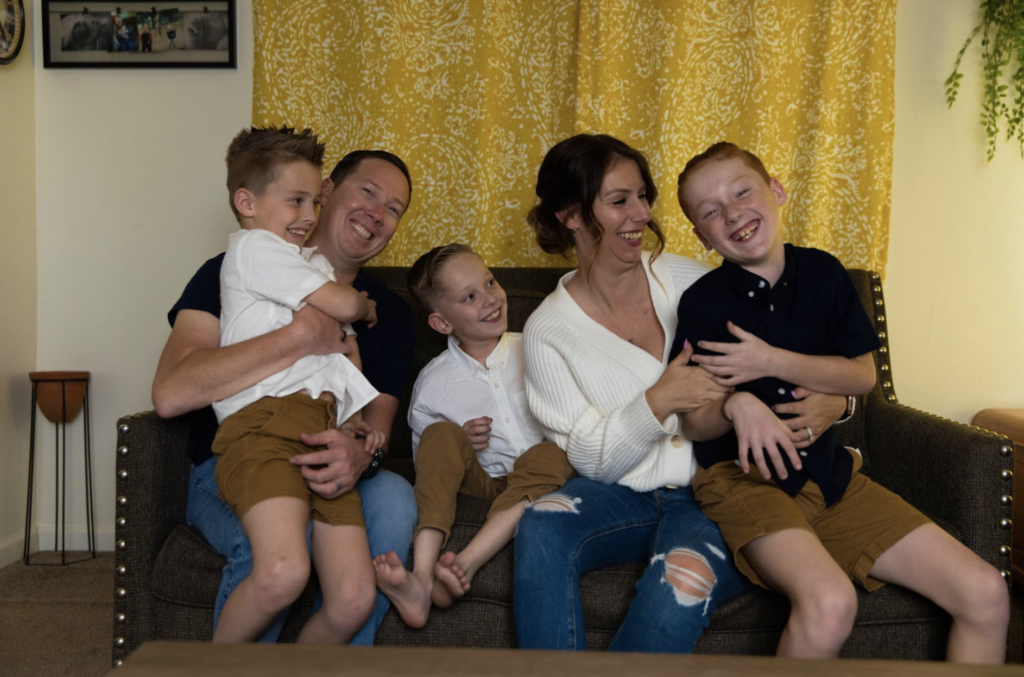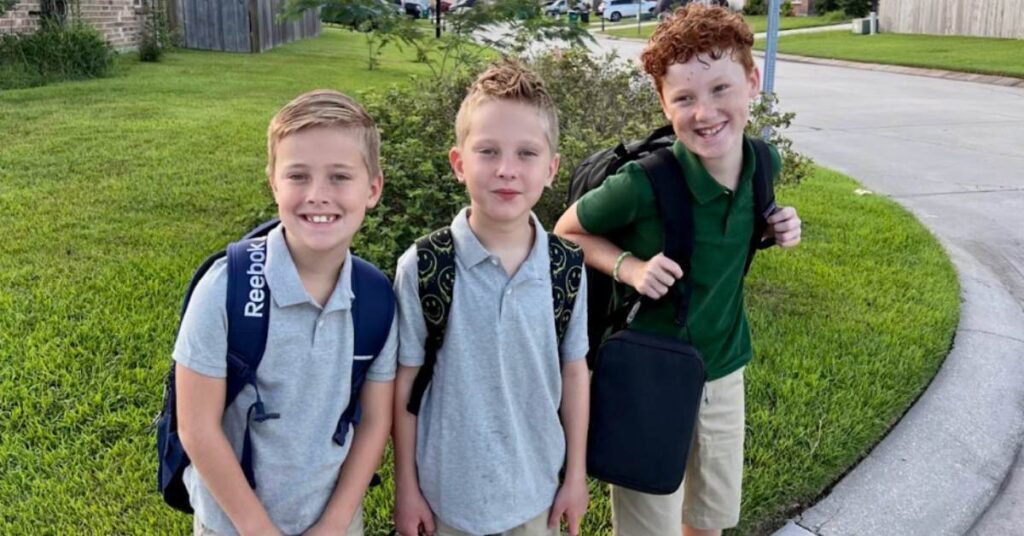Abbigail McCracken was awarded the title of AFI Coast Guard Military Spouse of the Year in 2022 and since then, she’s developed a program dedicated to combating bullying.
Bullying has been on the rise over the last decade and this coastie spouse is all in on fighting it head on in schools. From 2016-2019 bullying increased by 35% in schools. In 2023, McCracken launched Supporting All Families in Education (SAFE).


“There are so many programs for military kids and their education, but these programs take time and resources to implement. Some schools sadly aren’t willing to put in to get the program started or they don’t have the staff to spare to get it started. The teacher shortage has genuinely stretched most schools to their limits,” McCracken explained. “When I created SAFE it was meant to be a simple initiative that any school could easily implement into their program to help military affiliated children adapt and thrive in their environment. It’s built on three proposed stems of action.”
The steps to implementing SAFE are simple, she added.
- Establish some sort of “Big Brother Big Sister program where we encourage non military connected children to be partnered with new military connected children and act as mentors. Showing them around their new school, sitting with them at lunch and helping them make that transition into the classroom an easier one.
- Asking schools districts within 30 miles of a military installation to undergo military cultural competency and anti-bullying training. A lot of schools have anti bullying training but it can be very vague and rarely expands into military children and their unique set of challenges. Schools and districts need to recognize the diversity and individual experiences each military child brings with them in order to best support their integration in a new school environment.
- Create more clubs that could be run by staff, PTA/PTO or parent volunteers. For example a “military kids club” or a “kindness club”. This gives students a chance to connect with other like minded kids in their age group. In the instance of older children who play team sports; give military children the same chance to make high school sports teams etc. Older military children are often overlooked for students who have been attending that particular school/district longer.
“The best part is that these programs or changes wouldn’t just be benefiting military students but all students and would help our civilian community get a glimpse into what it’s like to be a military kid,” she said.
With military kids moving every two to three years and struggling to feel a sense of belonging, it shouldn’t come as a surprise that Blue Star Families reported that 17% of military youth are receiving mental health services.
McCracken knows all about the stress of military life. She married her coastie over a decade ago and quickly after, they found themselves pregnant with twin boys. They were born 11 weeks early and the couple would spend months in the hospital recliners watching them grow until they could come home.
As the boys got older (and another joined the group) the worries extended to not just their health but their wellbeing, especially in the school environment.
“I experienced bullying in school as I think most kids do, however, bullying has impacted me far more in my adult life. Mostly in the form of experiencing it through my children and their experiences. We transitioned to a new unit in 2022 excited for a new adventure as always but this time was different,” McCracken shared. “Not only did we experience the natural culture shock that comes along with moving to a new area, my kids began to be bullied relentlessly. From their hair color, skin color, all the way down to their freckles and the way they talked. Along with all this emotional abuse came physical violence as well. I can honestly say watching my children be bullied is far worse than any bullying I could have experienced personally.”
It was this experience which led her to forming SAFE and spreading the message to as many military families as she can. She doesn’t see herself as the owner of the program but rather an ambassador for change and the fuel to make it spread.
“I want to change the way we look at the military kid experience. Our children have to say goodbye to so many significant people in their lives at such a small age all the way into adulthood. I want to change the thought ‘military kids are resilient, they’ll adjust fine’,” McCracken said. “Resiliency in a military child comes at a high cost, and the least we could do is show them that someone is looking out for them. They don’t have to just adapt and go through the motions of every PCS, so that with the right resources and people behind them they can thrive in every PCS.”

